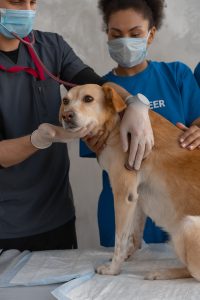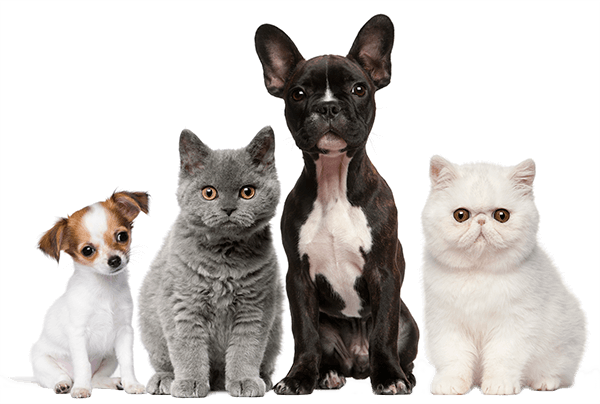January is a time for new beginnings and resolutions, and it’s also the perfect time to prioritize the wellness of our furry friends. Just like humans, pets need regular check-ups and preventative care to ensure they stay healthy and happy. By focusing on pet wellness in January, we can set the tone for the rest of the year and make sure our pets are getting the care they need.
Regular vet visits are an essential part of pet wellness. During these visits, veterinarians can catch any potential health issues early on and provide necessary treatments. They can also provide guidance on preventative care measures such as vaccinations, parasite control, and dental care. By staying on top of these preventative measures, we can help our pets avoid serious health problems down the line.
The Importance of Pet Wellness in St Petersburg
In St Petersburg, just like any other city, there are common pet health issues that pet owners should be aware of. These can include allergies, dental problems, obesity, and heartworm disease. By prioritizing pet wellness, we can help prevent or manage these issues and ensure our pets live long and healthy lives.
Pet wellness doesn’t just benefit individual pets; it also has a positive impact on the community as a whole. When pets are healthy, they are less likely to spread diseases to other animals or humans. Additionally, healthy pets are happier and more well-behaved, which can lead to stronger bonds between pets and their owners. By prioritizing pet wellness in St Petersburg, we can create a healthier and happier community for both humans and animals.
St Pete Pet Vaccinations: Protecting Your Furry Friend
Vaccinations are an essential part of pet wellness and can protect our furry friends from serious diseases. In St Petersburg, common pet vaccinations include rabies, distemper, parvovirus, and Bordetella. These vaccinations help prevent the spread of these diseases and keep our pets safe.
Scheduling and keeping track of pet vaccinations is important to ensure that our pets are up to date on their shots. By staying on top of vaccinations, we can protect our pets and prevent the spread of diseases in our community.
Local Pet Health Services: A Guide for St Petersburg Pet Owners
St Petersburg offers a variety of local pet health services to cater to the needs of pet owners. These services include grooming salons, pet boarding facilities, and pet supply stores. When choosing these services for your pet, it’s important to consider their specific needs and find providers that align with your values and preferences.
Choosing the right services: Grooming salons should prioritize the safety and comfort of pets and use high-quality products. Pet boarding facilities should provide a clean and safe environment for pets, with knowledgeable staff who can provide proper care and attention.
Pet supply stores should offer a wide range of products that cater to the specific needs of different pets. It’s important to choose stores that prioritize the health and well-being of pets and offer high-quality food, toys, and accessories. By choosing the right pet health services in St Petersburg, we can ensure that our pets receive the best possible care.
Preventative Measures: Tips for Keeping Your Pet Healthy
Preventative measures are key to keeping our pets healthy and avoiding costly veterinary bills down the line. Here are some tips for preventing common pet health issues:
1. Regular check-ups: Schedule regular check-ups with your veterinarian to catch any potential health issues early on.
2. Vaccinations: Keep your pet up to date on their vaccinations to protect them from serious diseases.
3. Parasite control: Use flea and tick preventatives and regularly deworm your pet to prevent infestations.
4. Dental care: Brush your pet’s teeth regularly and provide dental treats or toys to promote good oral health.
5. Exercise: Make sure your pet gets regular exercise to maintain a healthy weight and prevent obesity-related health issues.
6. Nutrition: Feed your pet a balanced diet that meets their specific nutritional needs. Avoid feeding them table scraps or foods that are toxic to pets.
By implementing these preventative measures, we can help keep our pets healthy and save money on veterinary bills in the long run.
Nutrition and Exercise: Supporting Your Pet’s Health
Proper nutrition and exercise are essential for supporting our pet’s overall health and wellness. Just like humans, pets need a balanced diet and regular physical activity to stay healthy and maintain a healthy weight.
When choosing food for your pet, it’s important to consider their specific nutritional needs. Different pets have different dietary requirements based on factors such as age, breed, size, and any underlying health conditions. Consult with your veterinarian to determine the best diet for your pet and choose high-quality food that meets their specific needs.
Regular exercise is also important for pets. Dogs should be walked or engaged in other physical activities daily, while cats should have access to toys and scratching posts to keep them active. Regular exercise not only helps maintain a healthy weight but also provides mental stimulation and prevents behavioral issues.
By providing proper nutrition and regular exercise, we can support our pet’s overall health and well-being.
Common Pet Health Issues: What to Look Out For
In St Petersburg, there are several common pet health issues that pet owners should be aware of. These include allergies, dental problems, obesity, and heartworm disease.
Allergies can cause itching, redness, and discomfort in pets. Common allergens include pollen, dust mites, and certain foods. If you notice your pet scratching excessively or experiencing other allergy symptoms, it’s important to seek veterinary care.
Dental problems are also common in pets and can lead to pain, infection, and tooth loss if left untreated. Regular dental care, including brushing your pet’s teeth and providing dental treats or toys, can help prevent dental issues.
Obesity is a growing problem in pets and can lead to a variety of health issues, including diabetes, joint problems, and heart disease. Maintaining a healthy weight through proper nutrition and regular exercise is essential for preventing obesity-related health issues.
Heartworm disease is a serious condition that is transmitted through mosquito bites. It can be fatal if left untreated. Regular heartworm prevention medication is essential for protecting pets from this disease.
By being aware of these common pet health issues and knowing the symptoms to look out for, we can seek veterinary care early on and prevent serious health problems in our pets.
If you’re looking for more information on pet wellness this January, be sure to check out this helpful article on natural options for flea and tick control. It provides valuable insights and tips on how to protect your furry friend from these pesky parasites without the use of harsh chemicals. Click here to read the article: https://fureverfriendsvc.com/2020/12/17/flea-and-tick-control-natural-options/.
FAQs
What is Pet Wellness January?
Pet Wellness January is a month-long campaign that aims to promote the health and well-being of pets. It is a time to focus on preventive care, nutrition, exercise, and other aspects of pet wellness.
Why is Pet Wellness January important?
Pet Wellness January is important because it helps pet owners understand the importance of preventive care and early detection of health problems. It also encourages pet owners to take an active role in their pet’s health and well-being.
What are some ways to promote pet wellness?
Some ways to promote pet wellness include providing a balanced and nutritious diet, regular exercise, annual veterinary check-ups, vaccinations, parasite prevention, dental care, and mental stimulation.
What are some common health problems in pets?
Some common health problems in pets include obesity, dental disease, arthritis, allergies, skin infections, ear infections, urinary tract infections, and cancer.
How can I tell if my pet is healthy?
You can tell if your pet is healthy by observing their behavior, appetite, energy level, and overall appearance. Regular veterinary check-ups can also help detect any underlying health problems.
What should I do if I suspect my pet is sick?
If you suspect your pet is sick, you should contact your veterinarian immediately. Early detection and treatment of health problems can improve the chances of a positive outcome.





